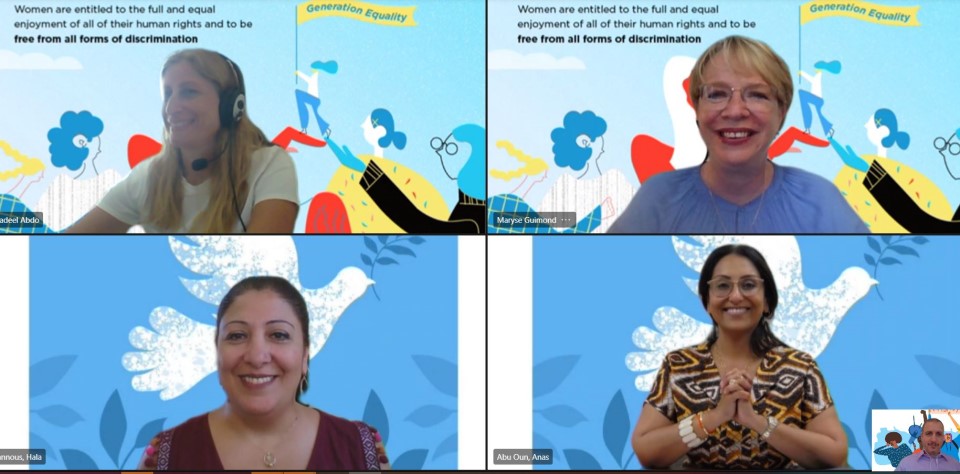UN Women, UNESCO sign partnership agreement to promote gender equality in Palestinian media
Date:

UNESCO and UN Women Representatives and officials in Palestine exchange views during a virtual ceremony held on 1 July 2021 to sign a partnership agreement aiming to enhance the role of women and promote gender-sensitive reporting in Palestinian media. Photo: UN Women.
The agreement, which will last until March 2022, encompasses various activities such as conducting a gender study of major media organizations and monitoring gender presence in five major outlets in Palestine.
It also provides for the development of a media code of conduct to support Palestinian media organizations to become more gender-sensitive and have clear indicators of women’s and men’s roles and participation within their ranks. Additionally, managers of media organizations and editorial staff will also be able to access training and capacity-building workshops with the aim of enhancing gender sensitivity at the level of produced materials as well as the work environment.
Noha Bawazir, Head of Office and UNESCO Representative, stressed on the role of UNESCO in promoting the values of freedom and the safety of journalists as one of UNESCO's mandates and its intersectionality with the female journalist's safety in particular. Ms. Bawazir explained the importance of collaborating with sister United Nations organizations to achieve mutual goals and objectives. “Improving diversity and pluralism in the media also means providing greater opportunities for young people, such as through the Linking Generations Through support and institutional capacity building. It also means fostering the participation of ethnic and linguistic minorities, persons with disabilities and marginalized groups, to have their voices heard and actively contribute to media content creation and policy planning” Ms. Bawazir added.
UN Women Special Representative in Palestine Maryse Guimond highlighted the importance and urgency of tackling gender equality in the media due to media organization’s important role in creating public discourse and in representing the world to the general public. "What the media produce is not random, not neutral and has consequences on shaping the world that we live in," Ms. Guimond said. "All women and girls have the right to enjoy equal participation in all aspects of life, whether in public or private. Achieving gender equality brings a more prosperous, peaceful and just world that is ultimately better for women, girls, boys and men alike,” Ms. Guimond added.
Ms. Bawazir and Ms. Guimond underlined that this agreement constitutes an essential tool of cooperation, and has the possibility of extension in the future, to entail further work to enhance women’s presence in various roles in the media, including as journalists, leaders, columnists, analysts, and news sources, in addition to ensuring gender-sensitive reporting of various issues.